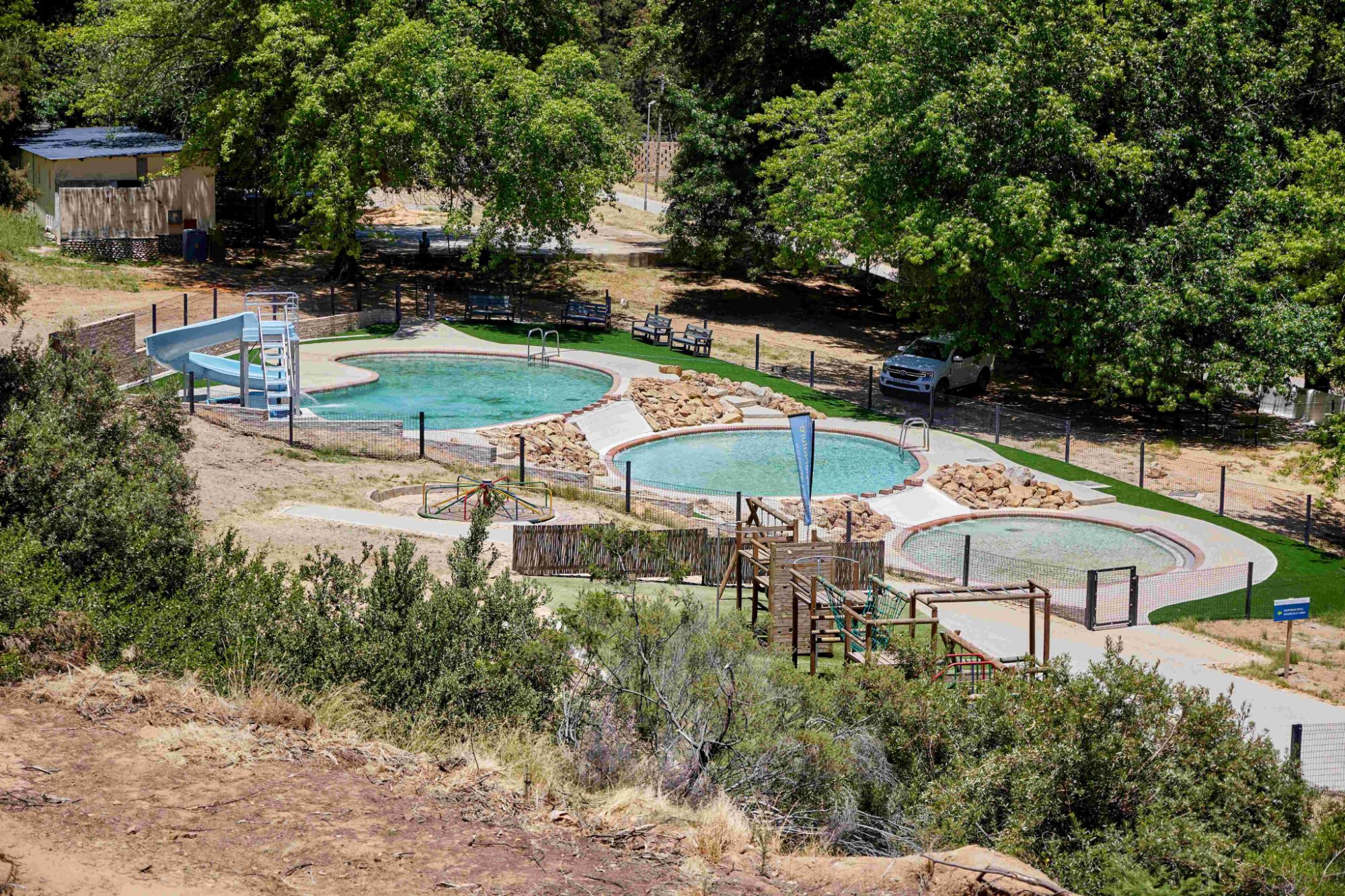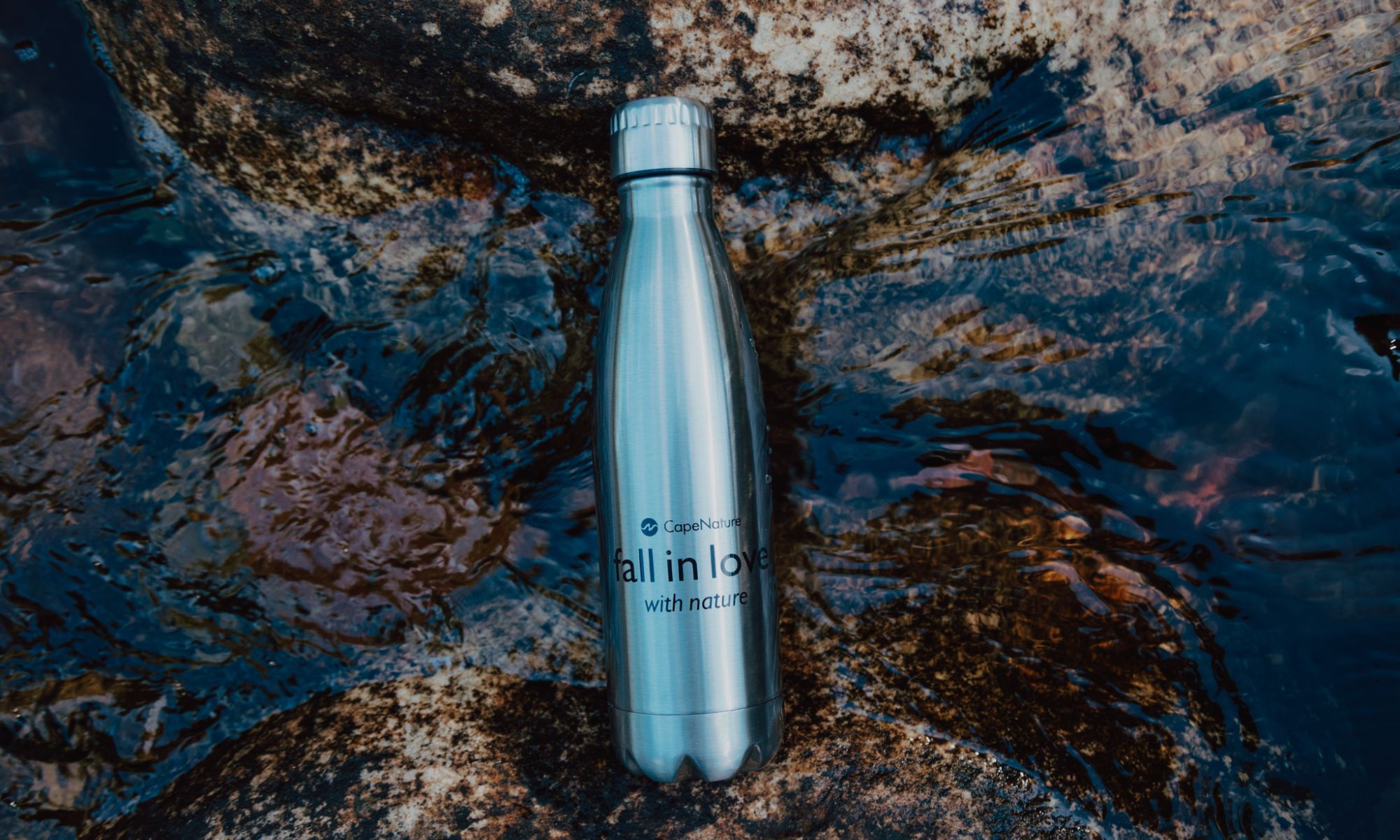
Minister De Lille hands over Infrastructure Maintenance Project at Wolwekloof Resort to CapeNature
Yesterday, Minister of Tourism, Patricia de Lille handed over a multi-million Rand infrastructure maintenance project funded by the Department of Tourism at the Wolwekloof Resort to CapeNature.
The Wolwekloof Resort in the Witzenberg Municipality near Ceres was one of the few facilities that people of colour could visit during the apartheid era and it was a place of many great memories for families and friends.
In recent years, the facility was closed to the public and was used by various government user departments and NGOs until a few years ago when CapeNature was afforded the opportunity to take over management of the resort.
Wolwekloof was developed into a resort for people classified as “coloured” during the Apartheid era. The first visitors to Wolwekloof were in 1978.
People who used this resort during this period were mainly from Cape Town and specifically the Cape Flats and the communities surrounding the resort.
The facility was frequented as part of people’s annual leisure activities during Easter, Christmas and New Year. Wolwekloof was also a site where union meetings were held during the Struggle for liberation.
In 1991 it was sold to the Divisional Council who did further development and managed the resort up until February 2002.
After the withdrawal of the Cape Winelands District Municipality, the facility was used until March 2017 as a Western Cape Provincial Fire Training Centre.
An agreement was reached between the Department of Community Safety and the Department of Transport and Public Works to manage the facility until 31 March 2017.
Wolwekloof was officially handed over to CapeNature in June 2019 to operate as a tourism facility.
Over the last ten years CapeNature has been dedicated and focused on crafting facilities and activities within the Eco Tourism Sector. To this end a number of developments have been undertaken to optimise income generation for biodiversity conservation; optimise shared growth and economic benefits to contribute to national and provincial tourism strategies and transform the tourism operations within CapeNature and strengthen existing and developing new products to especially provide broader access for all people.
Minister de Lille said: “Tourism is a key sector in our economy, injecting billions into the economy each year and providing much needed jobs for our people. We must therefore continue to work with urgency and work as partners to grow our tourism offering so that we attract more tourists to our beautiful country. The more tourists we welcome, the more investment and jobs the tourism sector can create”.
For the first 10 months of the year, South Africa welcomed more than 6.8million tourists, up by 2.4million compared to the same period last year.
The tourism sector is recovering rapidly, and our goal is to surpass pre Covid arrival numbers and reach 10 million visitors for the year by the end of March 2024.
CapeNature’s tourism performance post COVID-19 has also been improving despite the global impact of the COVID-19 pandemic. The 2021/22 financial year saw the entity bounce back with an impressive 18.6% growth in revenue compared to the previous year.
This set an unprecedented achievement in revenue growth since the inception of the entity.
The 2022/23 financial year once again resulted in a 20% growth in revenue demonstrating year on year growth and a 43% increase in visitor numbers.
Dr Razeena Omar, CEO of CapeNature, welcomed the partnership, saying: “We welcomed the opportunity to manage Wolwekloof as a tourism facility with enthusiasm and pledged our full commitment to restore the site. The upgrades to the picnic area, walkways and pools offer visitors a lovely nature retreat to relax and enjoy memorable times with family and friends. We appreciate the financial support from the National Department of Tourism (NDT), which hugely contributed towards the reinstatement of this resort as a tourism gem. Wolwekloof is one of five tourism projects under the NDT CapeNature partnership. It is collaborations like this that help to boost the Western Cape tourism economy, offering holidaymakers even more travel choices. We are very excited to publicly launch Wolwekloof during 2024.”
Today, Minister de Lille handed over the site to CapeNature where the Department of Tourism’s infrastructure maintenance work has been completed.
The Wolwekloof Resort project is part of the Department’s funded provincial state-owned assets maintenance programme.
The Department entered into a partnership agreement with the Development Bank of Southern Africa (DBSA) in November 2020 to implement and manage the delivery of various infrastructure projects across the country.
These projects included the maintenance and beautification of provincial state-owned attractions which are part of Presidential Employment Stimulus Programme. These projects are in line with the objectives of the Tourism Sector Master Plan to stimulate demand by investing in tourist attractions to build and diversify our tourism offerings.
The maintenance work at the Wolwekloof Resort sought to preserve the quality of product offerings at the identified site, as well as enhance the visitors’ experience and destination competitiveness.
The scope of work entailed upgrading the existing pools, installing a new pool slide and installing new fencing to pools, construction of new braai areas and construction of walkways.
The project site was handed over for implementation in December 2022 with a contract value of R3.7million and reached practical completion earlier this year.
Throughout the duration of the contract implementation, the project has provided employment to 11 general workers of which 6 were youth who have assisted in duties such as bricklaying, painting, paving, plumbing including any general construction duties.
Opportunities were also offered to 6 SMMEs who participated in skilled labour such as works installation and repairs.
Apart from the work done by the Department of Tourism’s contractor at the Wolwekloof Resort, the Department also conducted infrastructure maintenance work at several other sites in the Western Cape.
These include:
Project Name | Scope of Work | Project Value | Work Opportunities |
Cederberg Wilderness | Renovation of two chalets which include plastering, painting, tiling, plumbing, upgrading of bathrooms, toilets and electrical works. | Over R2.5million | 10 |
Kogelberg Nature Reserve | Installation of carports and solar system | Over R2.6million | 14 |
Goukamma Nature Reserve | Construction of top structure of new visitors centre and upgrades to existing chalets | Over R2.4million | 16 |
Lookout Hill Nature Reserve | Roof repairs, installation of new fencing and aircons | Over R2.8million | 9 |
De Hoop Nature Reserve | Upgrading of main building | Over R2.4million | 12 |
Total projects value of all Western Cape maintenance projects | Over R17.3million | 61 | |
“The investment by government into these projects is critical to our mission to provide quality and enjoyable tourist attractions to local and international visitors. Infrastructure investment by government is about creating the conditions for further investment and job creation by the private sector,” Minister de Lille said.
“We are also pleased that these projects have been able to employ people from surrounding communities to assist with job creation and poverty alleviation measures by government. Although the Department of Tourism’s work at Wolwekloof is now complete, CapeNature is still conducting an extensive amount of work in a phased approach,” Minister de Lille added.
The Wolwekloof Resort project is still in phase one with more work to be done on the water and electricity infrastructure at the site by CapeNature in the next three phases. CapeNature’s vision is to reinstitute the site for recreational and leisure purposes with a modern twist.
To date, as mentioned earlier, the swimming pools have been upgraded as well as day visitor facilities, ablutions and 11 camping pods have been developed.
“While we hoped the facility could be opened in time for the peak summer tourism period, CapeNature will be completing a range of important work to get the site up to standard and envisages to open the resort to the public in the Spring of 2024. It is my hope that we will continue to work as partners, all three spheres of government, together with CapeNature to restore this important tourist attraction to its former glory and upgrade it to be better than before,” Minister de Lille said.
The Minister urged CapeNature and all partners to inject urgency into the remaining phases of the project and to see it through to successful completion for the benefit of surrounding communities and for visitors from all over the country and the world.
Minister de Lille thanked all partners for their work on the recent upgrades to the resort and called for continued collaboration that will see all partners fulfil the tourism sector’s full potential and ensure that all visitors have a memorable time in South Africa.

Minister of Tourism Patricia de Lille and CapeNature CEO Dr Razeena Omar share in their delight of the restored facilities at Wolwekloof.

Some of the restoration work included installing a new pool slide and fencing for the pools, which will be a welcome feature for visitors on hot summer days.





